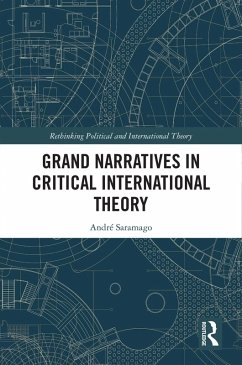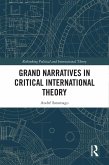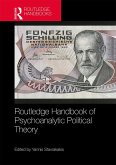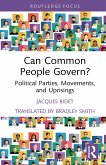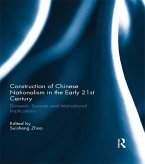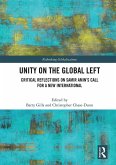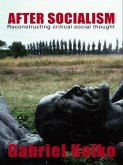Dieser Download kann aus rechtlichen Gründen nur mit Rechnungsadresse in A, B, BG, CY, CZ, D, DK, EW, E, FIN, F, GR, HR, H, IRL, I, LT, L, LR, M, NL, PL, P, R, S, SLO, SK ausgeliefert werden.
- John M. Hobson, University of Sheffield, UK
In this exceptionally well-written, scholarly volume, Saramago tackles head-on the seemingly intractable problem of reconciling the need for de-centred, cosmopolitan reflexivity in international theory with the critical impetus for a more secure means of orientation towards the development of human societies. The latter undertaking, characteristically, has necessitated 'grand' conceptual architecture and universal models of analysis which inevitably express certain social and epistemic contingencies, classically those of a Eurocentric character. Piece-by-piece, Saramago convincingly builds the case for a historical-sociological alternative to this impasse through reframing the problem in a radically processual, synthetic and empirically-grounded manner. The critical project, indeed, the grand narrative of emancipatory critique this engenders, is here effectively transmuted into an analysis of emergent social dynamics, their myriad forms of historical expression and variation, and an investigation of the conditions under which the human capacity for self-determination might expand or decline. This outstanding contribution to debates in the field is essential reading for scholars of international relations, sociology, and a range of cognate disciplines.
- Jason Hughes, University of Leicester, UK
Written as a well-informed, sympathetic but nevertheless deep critique of canonical figures in critical theory - Kant, Marx and Habermas, the objective of this study is no less ambitious than were the works that inspired it: To salvage critical theory, especially critical international theory, from accusations of Eurocentrism or irrelevance. Saramago does this by taking lead from his teacher, Andrew Linklater, and reconstructing critical theory and its approach to grand narratives by engaging with the process sociology of Norbert Elias. In this pursuit, Saramago goes further than Linklater when he demonstrates how, firstly, Marx succeeded in avoiding some of the traps Habermas fell into, and, secondly, Elias can be utilised in improving on Marx as well as on the more recent tradition of critical international theory. He does so by expanding Elias's - lucidly exposed - conceptual apparatus, introducing the dimension of inter-societal relations into it. The result is a compelling contribution to contemporary debates in International Relations theory and beyond.
- Kamila Stullerova, Aberystwyth University, UK

